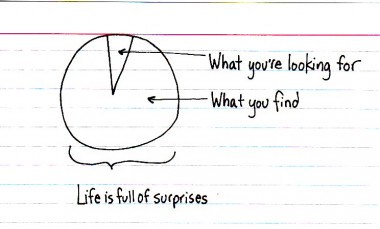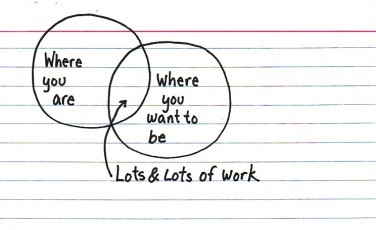Views from 2 sides of the political spectrum... both within NYT...but one believes (Krugman) and the other wants to start prematurely whining (Brooks). Seemed that the latter too was slowly warming up to Obama-love towards the end of the campaign cycle... but with McPlain out of the picture, he's back to showing his true colors. Like many other Republicans, he's also already acting like a whole term has passed and is eager to give Obama the "Failed" certificate! Dude.. its been 1 month and Obama has the right priorities but he is not a magician. He cannot suddenly solve health care and deal with all the multiple fires the Republicans have left burning over the last 8 years! (While at it, why don't you blame him for not catching OBL, the resurgence of Taliban in Afghanistan, and for not helping Katrina victims too, huh! Sheesh!!) You gotta walk before you can run. And one doesn't work in a vacuum! You've got to let some things slide to win over your opponents. Washington (and the country) cannot be suddenly reformed in a day!
Can only imagine what the non-NYT and not-so-level-headed as Brooks conservatives are shrieking!
First David Brooks..
Also read: A Bold Plan Sweeps Away Reagan Ideas by David Leonhardt
Can only imagine what the non-NYT and not-so-level-headed as Brooks conservatives are shrieking!
First David Brooks..
The greatest shortcomings are sins of omission, not commission. If you watched Obama’s magnificent speech Tuesday night, you got the impression that he bestrides Washington like a colossus. He imposes his authority in ways large and small, purging old habits. In reality, the situation is messier. At times, there is a weird passivity emanating from the White House, a deference to the Washington establishment. Almost no sacred cows are cut from this budget. The president is now engaged in an argument with Democratic appropriators about whether to strike earmarks from the omnibus spending bill. He’s apparently getting rolled even on a matter as easy and clear-cut as this.
...
Even though the budget is not all one would have hoped, I’d trust the folks in the Obama administration to craft a decent health care plan before I’d trust the Congressional Old Bulls. Obama blew a mighty trumpet Tuesday night, but after you blow the trumpet, you actually have to charge.
And while Brooks is cribbing that O's not dealing with health care, here's Krugman......
Even though the budget is not all one would have hoped, I’d trust the folks in the Obama administration to craft a decent health care plan before I’d trust the Congressional Old Bulls. Obama blew a mighty trumpet Tuesday night, but after you blow the trumpet, you actually have to charge.
Climate of Change
Elections have consequences. President Obama’s new budget represents a huge break, not just with the policies of the past eight years, but with policy trends over the past 30 years. If he can get anything like the plan he announced on Thursday through Congress, he will set America on a fundamentally new course.
For this budget allocates $634 billion over the next decade for health reform. That’s not enough to pay for universal coverage, but it’s an impressive start. And Mr. Obama plans to pay for health reform, not just with higher taxes on the affluent, but by putting a halt to the creeping privatization of Medicare, eliminating overpayments to insurance companies.
On another front, it’s also heartening to see that the budget projects $645 billion in revenues from the sale of emission allowances. After years of denial and delay by its predecessor, the Obama administration is signaling that it’s ready to take on climate change.
And these new priorities are laid out in a document whose clarity and plausibility seem almost incredible to those of us who grew accustomed to reading Bush-era budgets, which insulted our intelligence on every page. This is budgeting we can believe in.
Many will ask whether Mr. Obama can actually pull off the deficit reduction he promises. Can he actually reduce the red ink from $1.75 trillion this year to less than a third as much in 2013? Yes, he can.
Elections have consequences. President Obama’s new budget represents a huge break, not just with the policies of the past eight years, but with policy trends over the past 30 years. If he can get anything like the plan he announced on Thursday through Congress, he will set America on a fundamentally new course.
For this budget allocates $634 billion over the next decade for health reform. That’s not enough to pay for universal coverage, but it’s an impressive start. And Mr. Obama plans to pay for health reform, not just with higher taxes on the affluent, but by putting a halt to the creeping privatization of Medicare, eliminating overpayments to insurance companies.
On another front, it’s also heartening to see that the budget projects $645 billion in revenues from the sale of emission allowances. After years of denial and delay by its predecessor, the Obama administration is signaling that it’s ready to take on climate change.
And these new priorities are laid out in a document whose clarity and plausibility seem almost incredible to those of us who grew accustomed to reading Bush-era budgets, which insulted our intelligence on every page. This is budgeting we can believe in.
Many will ask whether Mr. Obama can actually pull off the deficit reduction he promises. Can he actually reduce the red ink from $1.75 trillion this year to less than a third as much in 2013? Yes, he can.
Also read: A Bold Plan Sweeps Away Reagan Ideas by David Leonhardt
The budget that President Obama proposed on Thursday is nothing less than an attempt to end a three-decade era of economic policy dominated by the ideas of Ronald Reagan and his supporters.
The Obama budget — a bold, even radical departure from recent history, wrapped in bureaucratic formality and statistical tables — would sharply raise taxes on the rich, beyond where Bill Clinton had raised them. It would reduce taxes for everyone else, to a lower point than they were under either Mr. Clinton or George W. Bush. And it would lay the groundwork for sweeping changes in health care and education, among other areas. More than anything else, the proposals seek to reverse the rapid increase in economic inequality over the last 30 years. They do so first by rewriting the tax code and, over the longer term, by trying to solve some big causes of the middle-class income slowdown, like high medical costs and slowing educational gains. After Mr. Obama spent much of his first five weeks in office responding to the financial crisis, his budget effectively tried to reclaim momentum for the priorities on which he campaigned.
The Obama budget — a bold, even radical departure from recent history, wrapped in bureaucratic formality and statistical tables — would sharply raise taxes on the rich, beyond where Bill Clinton had raised them. It would reduce taxes for everyone else, to a lower point than they were under either Mr. Clinton or George W. Bush. And it would lay the groundwork for sweeping changes in health care and education, among other areas. More than anything else, the proposals seek to reverse the rapid increase in economic inequality over the last 30 years. They do so first by rewriting the tax code and, over the longer term, by trying to solve some big causes of the middle-class income slowdown, like high medical costs and slowing educational gains. After Mr. Obama spent much of his first five weeks in office responding to the financial crisis, his budget effectively tried to reclaim momentum for the priorities on which he campaigned.





































